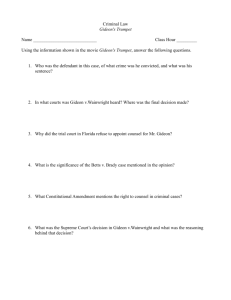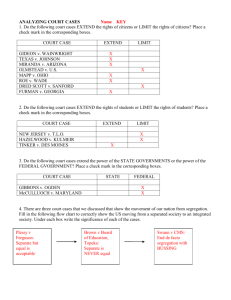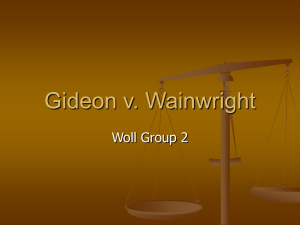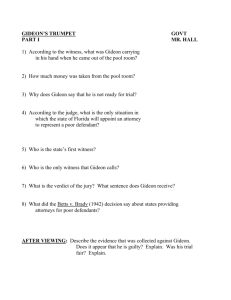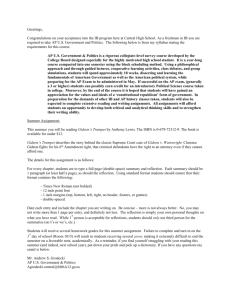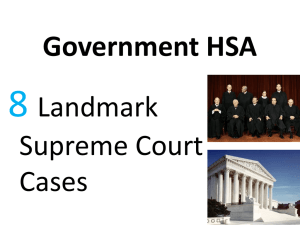Other Landmark Supreme Court Cases
advertisement
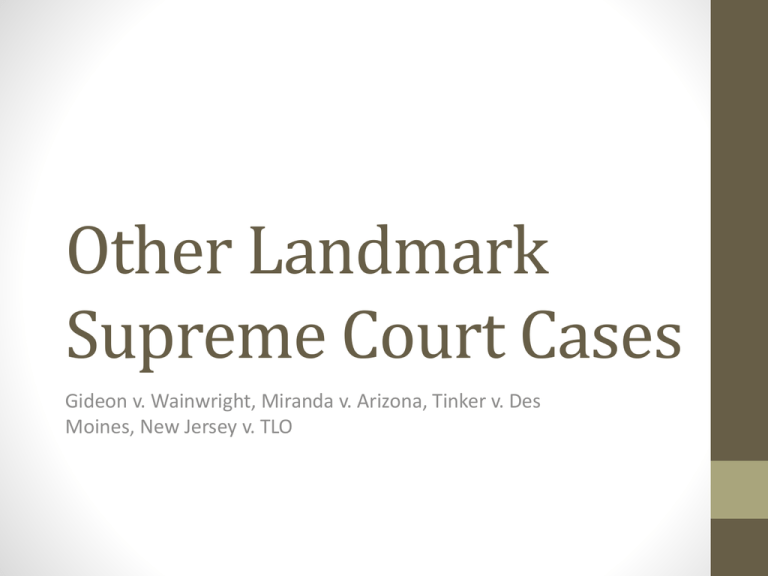
Other Landmark Supreme Court Cases Gideon v. Wainwright, Miranda v. Arizona, Tinker v. Des Moines, New Jersey v. TLO Gideon V. Wainright (1963) • In Florida in 1961, Clarence Earl Gideon was found guilty of breaking and entering. • He was sentenced to 5 years in prison. • Gideon appealed the case citing that he was denied counsel guaranteed in the Constitution. • Where in the Constitution does it explain this right to counsel? • The SCOTUS heard the case and granted Gideon a new trial. • With a court appointed public defender, Gideon was found not guilty. • The “Gideon Rule” upheld the 6th Amendment guarantee of counsel of all poor persons facing a felony. Other Cases • Miranda V. Arizona • Miranda arrested without being informed of his rights • The case upheld a citizens rights to fair trials by ensuring that people know their rights. • Tinker v. Des Moines High School District • Wearing black arm bands to protest Vietnam. • Students can exercise free speech if it does not disrupt classwork, create disorder, or interfere with the rights of others. • New Jersey v. TLO • A high school student was searched and arrested for drugs. She appealed citing the 4th Amendment. • 4th Amendment rights are eased in a school setting and searches only require reasonable suspicion and not probable cause. The U.S. Court System • There are two separate court systems in the United States (The Dual Court Sytem) • The national judiciary • The state court systems • There are two types of federal courts. • The U.S. Supreme Court • The lower federal courts • Federal Courts have jurisdiction over most federal cases. • Most cases in the U.S. are heard in state and local courts. The Appellate Process • Courts with original jurisdiction • Courts that hear cases first • Courts with appellate jurisdiction • Courts of appeals. • Cases may be appealed all the way up to the Supreme Court
